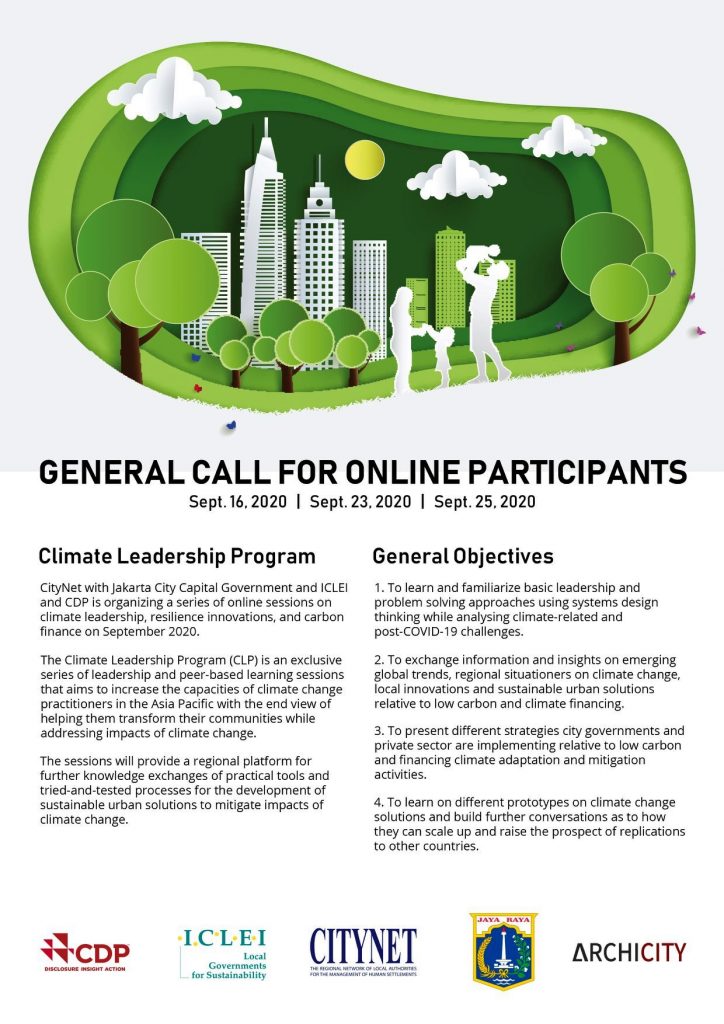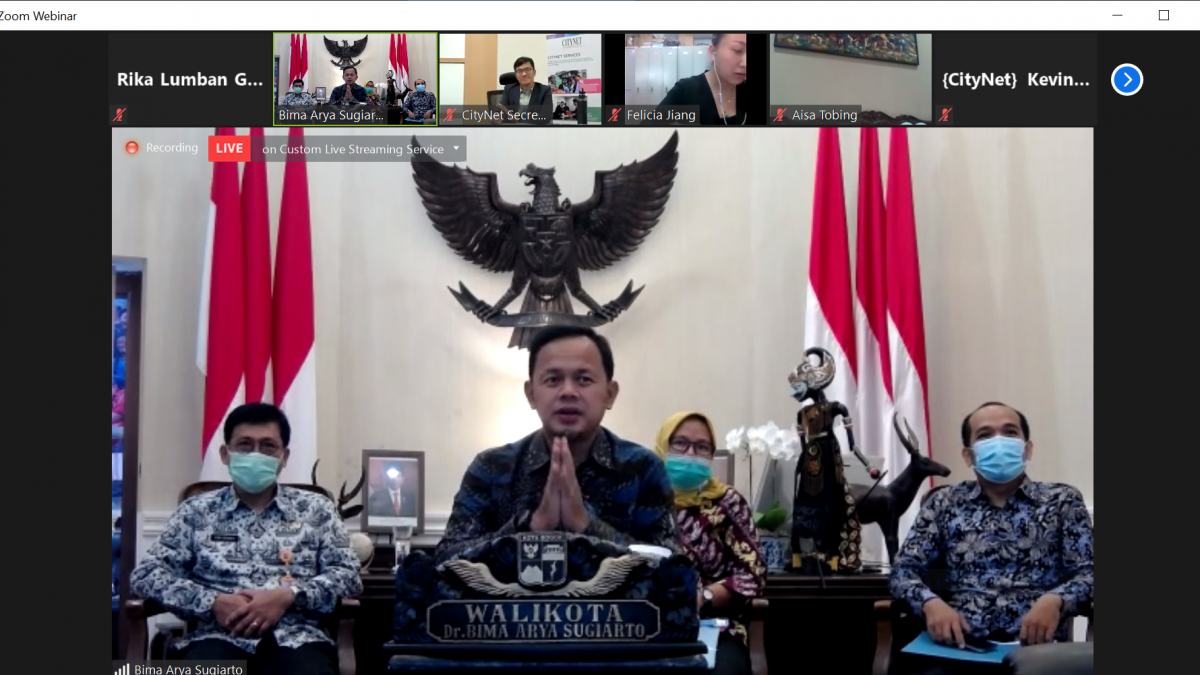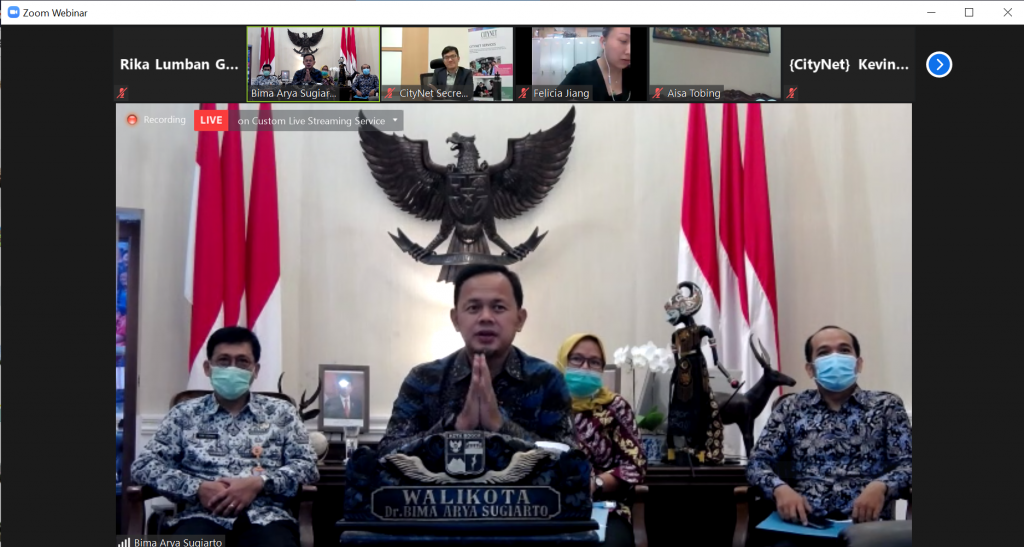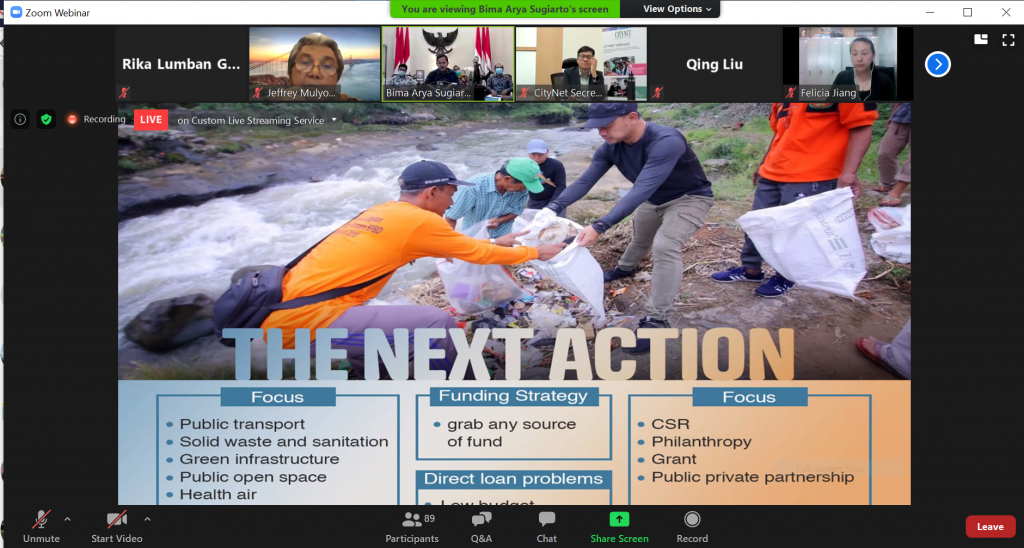
Development Data Governance Webinar Series: Driving Indonesia’s One Data Policy
October 1, 2020
Urban-LEDS cities to promote pathways for fair and sustainable energy for all at Daring Cities 2020 Conference
October 9, 2020City Leadership Program (CLP) is a peer-based exchange of best practices of both – innovative international plans and local climate actions. It provides a regional platform for further knowledge exchange of practical tools, and tried-and-tested processes for the development of sustainable urban solutions to help mitigate impacts of climate change.

On 25 September 2020, Mayor of Bogor City, Bima Arya Sugiarto served as a panelist in the last CLP webinar series, ‘Resilience Innovations and Carbon Trade in the Asia Pacific.”’The CLP is an exclusive series of leadership and technical webinarsthat aims to increase the capacities of climate change practitioners in the Asia Pacific with to help them transform their communities while addressing the impacts of climate change. The CLP is an annual program by CityNet, and this year, it is jointly organized by Jakarta Research Council, ICLEI Southeast Asia and East Asia, Beijing ArchiCity Consulting Co. Ltd and GrEEnAcc.
Mayor Sugiarto was joined by Mr. Dicky Edwin Hindarto, Advisor, Indonesia Joint Crediting System; Mrs. Liu Qing, Carbon Market Business Manager, China Emission Exchange (CEEX) Guangzhou; Mrs. Dr. Felicia Jiang, Associate Researcher, Natural Resources Policy, Ministry of Natural Resources; and Mr. Allendri B. Angeles, Acting City Environment and Natural Resources Officer and Solid Waste Management Officer, Pasig City, Philippines.
The following are some of Bogor City’s major initiatives in its transition towards low-emission development and climate resilience:
- Accomplishing climate risk and vulnerability assessment (CRVA) for 2021-2050 along with the greenhouse gas inventory (GHGI) for 2015-2018 that are supported under Urban Low Emission Development Strategies Phase II (Urban-LEDS II) project.
- Allocating 7.3% of 2019 local budget to support climate change mitigation and adaptation actions, which will further be increased in the next fiscal year.
- Issuing 24 local regulations along with 27 mayoral regulations.
- Collaborating with development partners at national and regional levels, academia, private sector, local and international NGOs, including ICLEI-Local Governments for Sustainability, Clean Air Asia, AFD, AIUWASH PLUS, GIZ SUTIP. This will also help maintain and widen the city’s network in the future.
- Directing climate change mitigation and adaptation actions toward four dimensions: energy preservation, land use optimization, waste management and health improvement.
- Initiatives on energy preservation: rerouting city transportation, increasing pedestrian and bicycle lanes,promoting energy efficiency in public, commercial, and residential buildings, green transportation and initiation of tram.
- Increasing green open spaces through urban farming, sustainable agriculture, redistribution of space functions, thematic village, planting trees on critical lands and construction of retention ponds and absorption wells are the initiatives for land use optimization.
- Waste management initiatives: waste bank, temporary landfill equipped with 3R concept, wastewater management, communal septic tank facilities, community-based waste management, Bogor plastic program, law enforcement in the waste sector and naturalization of rivers.
- Construction of hazardous and toxic materials of wastewater management, prevention and eradication of dengue disease, prevention and control of infectious diseases, application of smoke free areas and environmental health improvement are initiatives for health improvement.
Recommended links:



